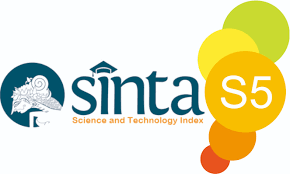Tinjauan Epistemologi Terhadap Pancasila Sebagai Dasar Negara Republik Indonesia
Abstract
Pancasila was not born as an epistemological system. Pancasila was born as the basis of
the State, is an ideology and contains a view of life. This happened in 1945. Epistemology was
born long before the birth of Pancasila. Epistemology was born from the efforts of the sophists in
Ancient Greece to modern times, which placed the study of epistemology as closely related to the
structure of knowledge.
The epistemological basis of Pancasila is essentially inseparable from is ontological basis.
Pancasila as an ideology is rooted in its basic values, namely the philosophy of Pancasila.
Therefore, the basic epistemology of Pancasila cannot be separated from its basic concept of
human nature. If humans are the ontological basis of Pancasila, then it has implications for the
epistemological building, namely the epistemological building placed in the building of human
philosophy. The research was carried out in a literal way, with a literature review of selected books
and journals or scientific magazines containing descriptions of philosophy, ideology, Pancasila
philosophy, epistemology, philosophy of science, and history of philosophy. The data needed is
qualitative data that is processed by the reflective method, equipped with the 'verstehen' method.
The issue of epistemology in relation to Pancasila is intended to find sources of
knowledge, the truth of Pancasila and the composition of Pancasila as a system of knowledge. The
source of knowledge from Pancasila is seen from the flow of knowledge, namely empiricism and
rationalism.




